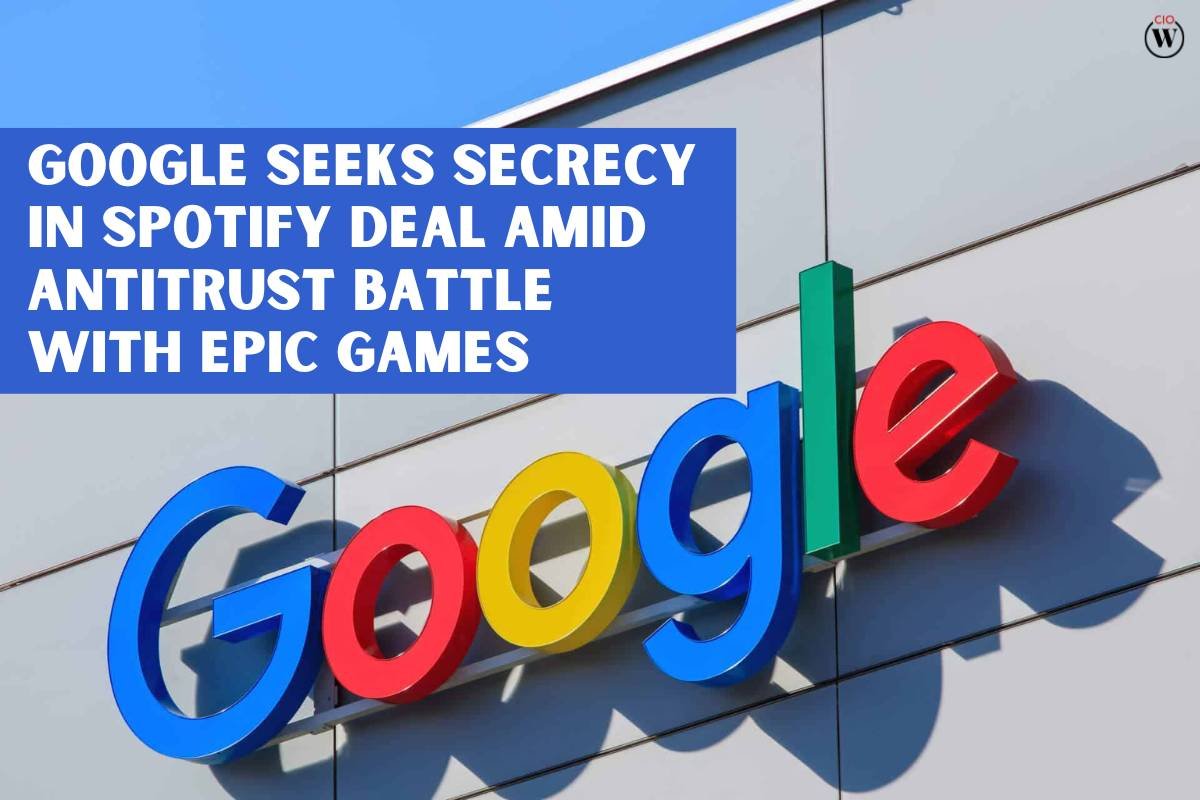In a recent development within the ongoing antitrust lawsuit, Google’s attorney, Glenn Pomerantz, has stirred controversy by requesting that certain portions of an upcoming exhibit disclosing Google’s User Choice Billing agreement with Spotify be kept confidential. This agreement allows Spotify to employ its own payment system for subscriptions while still providing a share of the revenue to Google.
Pomerantz argued that disclosing the Spotify deal’s details could harm ongoing negotiations with unidentified third parties. He made these arguments during the Fortnite court proceedings, overseen by Judge James Donato as part of the Epic v. Google antitrust case. Despite expressing a willingness to share limited information, Pomerantz firmly opposed revealing sensitive details to the public.
Google’s Unconventional Partnership with Spotify
The dispute traces back to 2020 when Epic Games initiated its battle against what it termed the “Apple tax” and “Google tax” on their respective app stores. During this period, Spotify emerged as a significant ally, standing shoulder to shoulder with Epic in the Coalition for App Fairness lobbying group. However, the dynamics shifted in 2022 when Spotify entered into a partnership with Google under the “User Choice Billing” program. This initiative allowed Spotify to bypass Google’s standard fees for transactions on Android.
Google portrayed User Choice Billing as a measure that would reduce the fees for developers to 26 percent, four percentage points less than the standard 30 percent. Despite this explanation, doubts about the undisclosed terms of the agreement persisted, fueling speculation that Spotify was receiving preferential treatment that other app developers would also seek.
Epic’s lead attorney, Gary Bornstein, hinted at this special treatment during discussions. He emphasized that there was a rate significantly lower than what had been discussed in the courtroom, alluding to an aspect of the deal yet to be revealed.
Epic Games Stands Firm in Its Opposition
Despite the judge’s inquiry about whether Google could resolve Epic’s concerns by allowing users to utilize their billing system, Epic remained resolute in its stance. Epic filed the lawsuit long before Google introduced User Choice Billing and has consistently asserted that this program does not provide a viable solution. CEO Tim Sweeney, in particular, has publicly criticized the initiative, labeling it a “sham” and alleging that Google continues to claim a substantial share of revenue for minimal service.
As the legal battle between Epic Games and Google continues, the secrecy surrounding the Spotify deal raises questions about the fairness and transparency of app store practices. The outcome of this high-profile case could have far-reaching implications for the tech industry and the future of app store fees, potentially reshaping the relationships between platform providers, app developers, and consumers. The desire for confidentiality in the Spotify deal only intensifies the intrigue surrounding this ongoing antitrust dispute.









